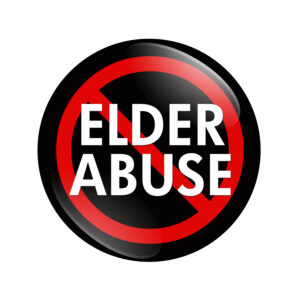7 Startling Facts about Elder Abuse

Elder abuse is a serious problem that is far more common than many people realize. The statistics are startling.
- 1 in 10 Americans over age 60 has experienced abuse.
- Only 1 in 14 cases of elder abuse is believed to be reported.
- In nearly 60% of elder abuse cases, the perpetrators are family members. Most of these are the elder’s adult children or spouses.
- Long-term care facility staff are accounting for a growing number of abuse cases.
- Elders with a mentally impairing condition such as dementia account for nearly 50% of abuse victims. Elders who are socially isolated or physically disabled are also at higher risk for abuse.
- An elder’s risk of death increases by 300% if they have been abused.
- Financial abuse costs American elders between $2.9 billion and $36.5 billion dollars every year.
What are the types of elder abuse?
There are seven different forms of elder abuse.
Physical Abuse
Physical abuse includes non-accidental physical force that can result in injury, pain or impairment. It includes things like hitting, pinching, pushing or physically restraining an elder.
Sexual Abuse
Sexual abuse includes non-consensual sexual activity of any kind with an elder.
Emotional Abuse
Emotional abuse occurs when emotional distress is inflicted upon the elder. It includes threats, intimidation, harassment and name calling.
Financial Abuse
Financial abuse includes any illegal or improper handling of an elder’s finances, assets or property. It could include scams, predatory business or billing practices, theft or altering of property titles, wills or other legal documents.
Neglect
Neglect occurs when a person responsible for an elder’s care fails to fulfil their obligations. It includes both willful deprivation, when a caregiver outright denies food or medical care to the person in their care, or passive neglect, when the caregiver fails to meet the elder’s needs.
Abandonment
Abandonment is a severe form of neglect in which the person who is responsible for an elder’s custody leaves them without arranging for adequate alternate care. An example could include deserting a dependent elder in a hospital emergency room.
Self-Neglect
Self-neglect is the one form of abuse that an elder commits against themselves. When an elder fails to meet their own essential needs it may be considered self-neglect.
Get Help when Elder Abuse is Suspected
It is important to speak up when you suspect elder abuse. If the elder is in immediate danger, call 911. Otherwise, contact your local branch of Adult Protective Services (APS). This agency is responsible for investigating concerns about elder abuse.
It’s not always clear whether abuse is actually occuring, and you don’t have to know for sure to report your concerns to APS. When you notify them, professionals look into the situation to ensure that the senior is safe and that their needs are being met.
Home Care can Help
Taking care of a loved one can be extremely challenging. A large percentage of elder abuse is committed by well-meaning family members who are simply overwhelmed or don’t know how to care for their loved one’s changing needs.
When professional senior care services come into the home it can help in a multitude of ways. For example, senior care aides can::
- Take care of household needs such as laundry, housekeeping or cooking
- Transport the senior or caregiver to church or community activities to help keep them engaged and connected
- Offer respite opportunities to the caregiver spouse
- Help with challenging personal care, such as bathing, which can conserve the caregiving spouse’s energy
If you or an aging loved-one is considering a Caregiver in O’Fallon, MO please contact the caring staff at Autumn Home Care, LLC today at 636-448-9347.
Sources
https://www.apa.org/pi/prevent-violence/resources/elder-abuse
- Senior Home Care Tips to Prevent Bed Sores - November 3, 2023
- Understanding Personal Care at Home - October 19, 2023
- Home Care Assistance Tips for Long Distance Caregiving - October 2, 2023

